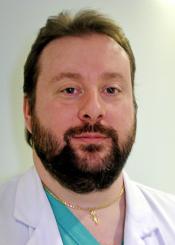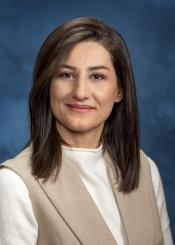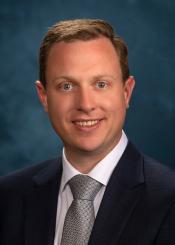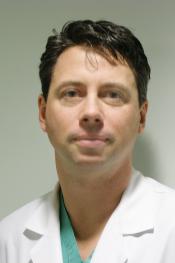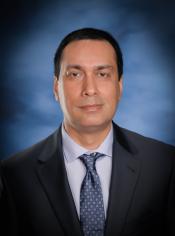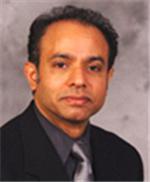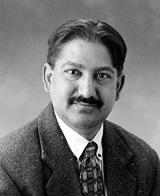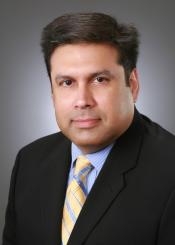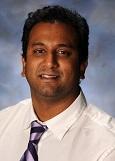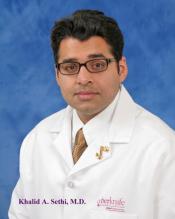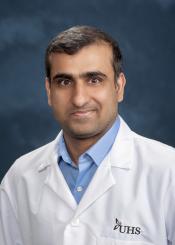
UHS Neurosciences
Neurosciences at UHS encompass all of the specialties that relate to the structure or function of the nervous system, brain and spine: Chiropractic care, endovascular surgery, neurology, neurosurgery, pain management, physical therapy and stroke care.
There’s no better example of cooperation in a multispecialty center than neuroscience: So many specialists interact to arrive at a diagnosis, educate patients about their care options, and partner with them to choose the right treatment. UHS has been a leader in brain and spine care for more than 40 years, and ranks as one of the top neurosurgical centers in New York state.
UHS neuroscience specialists use strong collaborative relationships to evaluate patients on an individual, case-by-case basis and ensure they are appropriately managed. Our goal is that our team approach to care ensures every patient gets the right treatment at the right time.
Welcome to UHS Neurosciences! I am incredibly proud to introduce you to a team of dedicated, well-trained, passionate professionals who are at the forefront of advancing neurological care in our community. Our team comprises some of the brightest providers in the field, each bringing unique expertise, sub-specialized training, and a shared dedication to improving the lives of our patients. From neurosurgeons and neurologists to specialized nurses and support staff, every member of the UHS Neurosciences team plays a crucial role in our collective mission to provide the highest standard and quality of care and an excellent patient experience. We treat a wide range of neurological diseases, ranging from disorders of the brain, spine, and nervous system and are committed to providing you with high-quality, comprehensive, and coordinated care… with you at the center of all that we do.
Simone Betchen, MD, MBA
Chief of Neurosciences/Attending Neurosurgeon
UHS Neurosurgery
Services & Treatments
Stroke
Wilson Medical Center is a New York state-designated Stroke Center, and is committed to delivering unsurpassed stroke care. This devotion is evident in our development of an acute stroke-management system. Here, patients who are having a stroke or are suspected of having a stroke are immediately given an emergency evaluation by our brain attack team. This team includes board certified neurologists, neurosurgeons and neuroradiologists who perform immediate studies of the situation such as diffuse and profuse MRI scan and acute thermolytic therapy. If surgery is required, our vascular surgeons will surgically correct the problem that caused the stroke. Stroke patients recover in our Neurosciences Step-Down Unit and are often discharged to the Sandiford Rehabilitation Center.
Brain Trauma / Spine Trauma
Wilson Medical Center is a Level 2 Trauma Center with a neuro-trauma team that is available around the clock. This team includes neurosurgeons, a highly trained intensive care unit, our Neuroscience Step-Down unit, our neurosurgical unit and the Sandiford Rehabilitation Center. Spine trauma patients are evaluated and treated according to national protocols including monitoring semato, SSEPS and intraoperative procedures. Our neuro-spine surgeon has access to every type of spine instrumentation approved by the FDA. Following discharge, the Sandiford Rehabilitation Center can help brain and spine trauma patients through the rehabilitation process. Long-term care may also include a Baclofen pump implant or Botox therapy to treat spasticity.
Epilepsy
Essential Tremor
Parkinson’s Disease
Brain Tumors
- Positronic EMI
- CT/PET (combined computerized tomography and positron emission tomography)
- Operating microscope
- Intraoperative chemotherapy
- Post-operative radiation therapy
- Post-operative chemotherapy
Neurovascular
- Microsurgery for treatment of aneurysms
- Interventional neuroradiology for embolization AVMs and tumors
Spine Trauma and Degenerative Spine Conditions
Our Neurosciences Department offers all FDA-approved treatments for spine trauma and degenerative spine conditions.
Neurodegenerative Diseases
Our Neurosciences Department offers all FDA-approved treatments for neurodegenerative diseases, including all types of shunting for hydrocephalus.
Facial Pain / Trigeminal Neurologia
- Medications
- Surgical treatments such as microvascular decompression and radiofrequency lesion.
Spinal Pain
Our Neurosciences Department offers non-surgical treatments including physical therapy, epidural blocks, facet blocks, sympathectomy and spinal cord stimulation. Surgical procedures offered to treat spinal pain include Baclofen pump implantation and Botox therapy to treat spasticity.
Neurosurgery
UHS Neurosurgery provides the only comprehensive brain and spine care program in the region. As leaders in the field for more than 40 years, UHS ranks as one of the top neurosurgical centers in New York state.
Neurosurgery is a specialized branch of medicine focusing on the surgical treatment of disorders affecting the brain, spine, and peripheral nerves. Neurosurgeons are equipped to handle complex conditions requiring intricate and precise surgical interventions. At UHS, our Neurosurgery team offers cutting-edge care, combining advanced technology with expert skill to provide patients with the best possible outcomes. UHS Neurosurgery offers a comprehensive range of neurosurgical services, addressing both common and complex neurological conditions.
Spine Care & Pain Relief
UHS Spine Care & Pain Relief provides a comprehensive approach to acute and chronic spine care in a team approach, utilizing multi-modalities such as physical therapy, chiropractic care, medication management, pain psychology, and a wide range of interventional procedures. The provider team includes an Orthopedic Spine Surgeon, a Physical Medicine & Rehab physician, an Anesthesiologist, and a Clinical Psychologist with specialized training in Pain Psychology. Interventional Procedures provided include both office-based procedures such as trigger point injections and joint injections, as well as fluoroscopy guided interventions such as epidural steroid injections, facet joint injections, radiofrequency ablations, and spinal cord and peripheral nerve stimulators performed at the UHS Wilson Place Ambulatory Surgery Center.
Services are conveniently located in Johnson City, NY and Norwich, NY as well as through virtual visits.
Neurosciences Step-Down Unit
The Neuroscience Step-Down unit contains six beds and 16 staff members. This caregiver-to-patient ratio is in the mid-range, allowing for attentive and intimate care for both patients and families. The staff prides itself on its close patient monitoring, ability to provide intensive therapy and commitment to bringing families into the care experience. All these factors make the unit an area of neuroscience excellence.
The unit has many functions: it is a transitional midpoint from surgery to discharge; a secondary treatment center after a patient is released from the Intensive Care Unit; and the primary care facility for general or orthopedic trauma patients, stroke patients and those recovering from back surgery.
As a transitional center, the unit cares for patients who will seek rehabilitation (often provided at the Sandiford Rehabilitation Center, patients on their way to brain injury rehabilitation and those who have moderate trauma injuries.
Sandiford Rehabilitation Center
Patients experiencing a functional disability due to neurologic, surgical or medical diseases or injuries have convenient access to a highly integrated system of inpatient rehabilitative services through our Sandiford Rehabilitation Center at UHS Binghamton General Hospital. Here, we deliver a contemporary, interdisciplinary inpatient program using a holistic care model where our professional staff works with each patient (and members of the patient’s family) to meet functional goals and maximize independence.
During a typical stay at the Sandiford Rehabilitation Center, a patient is evaluated and treated by a team composed of a physician who specializes in physical rehabilitation; an admissions coordinator; a registered nurse with rehabilitation expertise; and a variety of therapists, clinical social workers and case managers. Our individualized patient care approach is designed to help patients avoid medical complications, maximize functional abilities and make a smooth transition home.
Typical Patient Conditions
- Stroke
- Neurological condition
- Brain injury or dysfunction
- Spinal cord dysfunction
- Arthritis
- Orthopedic condition
- Cardiac condition
- Amputation of limb
- Pain syndromes
- Developmental disabilities
- Burns
- Total joint replacement
- Pulmonary condition
- Congenital deformities
- Major multiple trauma
- Debility
- Other disabling impairments
While the majority of our patients are adults or seniors, we also deliver care to school-age children (6 is the youngest age accepted) through adolescents.
Length of stay at the center is based on the patient’s rehabilitation diagnosis and treatment plan. An average length of stay ranges from five days for orthopedic patients to two or three weeks for patients suffering from neurological conditions or brain injury.
The Sandiford Rehabilitation Center is Medicare certified and also works with many commercial insurance plans. For more information, to speak with an admissions coordinator, or to tour the unit, please call 607-762-2652 or 607-762-2158
What Patients are Saying
UHS News
-
 Meet Olivia, daughter of UHS employee Stacy Baranski and this year’s Southern Tier Heart Walk honoreeApril 21, 2025
Meet Olivia, daughter of UHS employee Stacy Baranski and this year’s Southern Tier Heart Walk honoreeApril 21, 2025Each year, the American Heart Association selects one area resident as the Heart Walk honoree. This year’s honoree is Olivia Reynolds, who needed emergent open heart surgery when she was 13 days old, and is now a thriving 5-year-old. Olivia is the daughter of Stacy Baranski, lymphedema therapist at UHS Binghamton General Hospital. We are proud to share this amazing story featuring a member of the UHS family!
-
 Stay on track: Ensure your child’s vaccinations are up to dateApril 21, 2025
Stay on track: Ensure your child’s vaccinations are up to dateApril 21, 2025Pediatricians at UHS emphasize that staying up to date with your child's vaccine schedule is more important than ever for their overall physical health. Falling behind on immunizations can leave children vulnerable to preventable diseases, which may lead to severe complications if they become infected.
-
 Kelly Buman is our latest DAISY Award winner!April 16, 2025
Kelly Buman is our latest DAISY Award winner!April 16, 2025A program to recognize the care and compassion of extraordinary nurses continues at UHS with Kelly Buman, RN, Emergency Department, UHS Wilson Medical Center, being named the February winner of the DAISY Award!
-
 Know where to go for your medical concernApril 14, 2025
Know where to go for your medical concernApril 14, 2025It can be tough to distinguish where to go for medical care when your symptoms feel unbearable, and your primary care provider is unavailable. Here are some key differences to help you decide.




